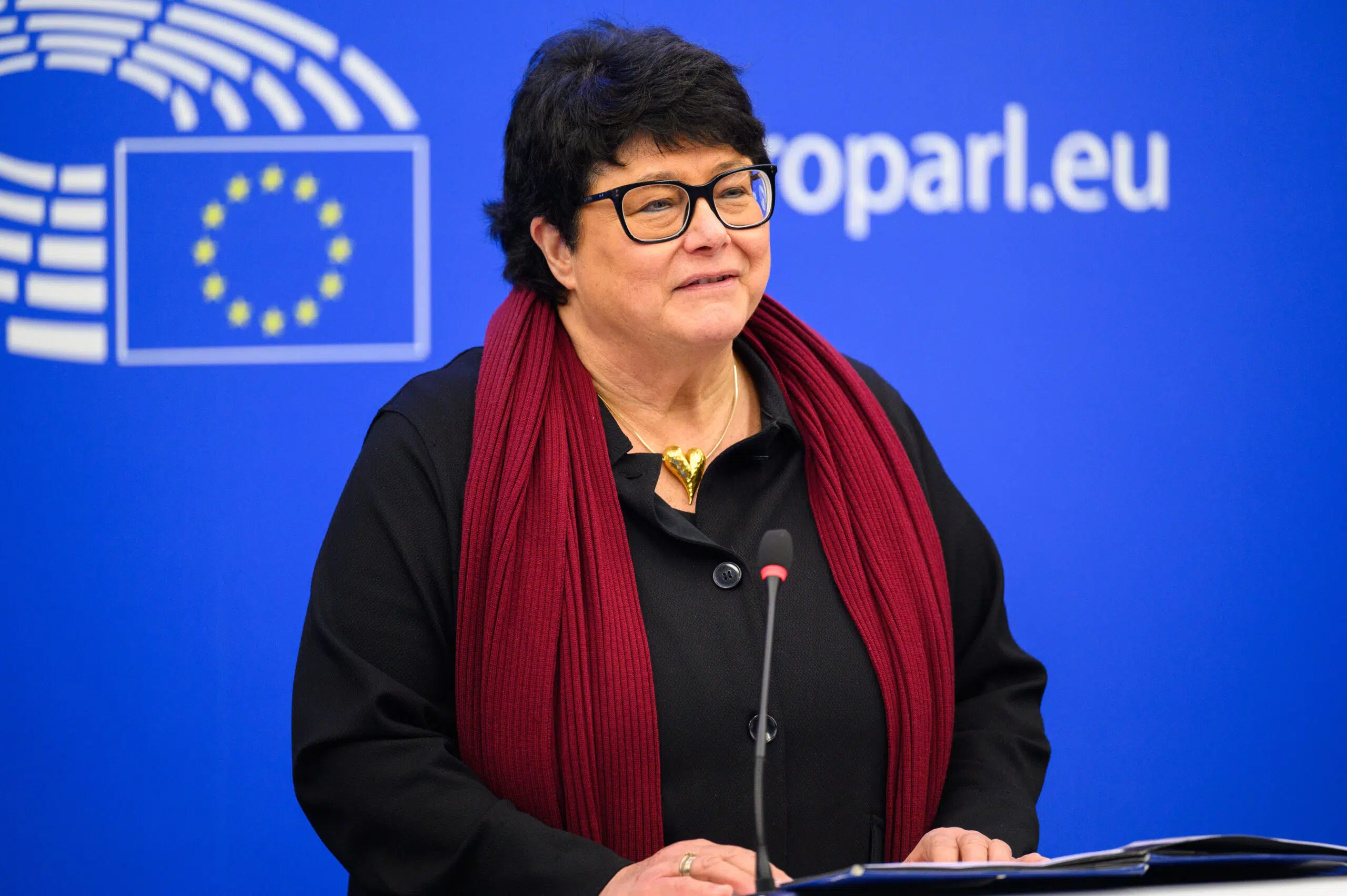Brussels – The EU law to protect media independence is one step closer to the finish line. Today (March 13), the European Parliament confirmed by large majority its support for the text of the regulation that came out of interinstitutional trialogues: limits on the use of spyware against journalists and the use of coercive methods to reveal sources, better guarantees of editorial independence of public media, and mechanisms to prevent large platforms from arbitrarily removing content. All that is needed to be law is the final green light from member states.
The new regulation, approved by the Strasbourg hemicycle by 464 votes to 92 and 65 abstentions (including Lega and Fratelli d’Italia), will oblige EU countries to protect the independence of the media and counter any form of interference in editorial decisions. “For the first time, we will have a regulation that will be fully transposed in the member states,” rejoiced the text’s rapporteur for the parliament, Sabine Verheyen.
The agreement found with the EU Council last December 15 stipulates that, to protect the work of journalists, authorities “will be prohibited from using arrests, fines, searches, intrusive surveillance software installed on electronic devices and other coercive methods to pressure journalists and editorial managers and force them to reveal their sources.”
One of the thorniest issues was related to the provisions on the use of surveillance software (spyware). Compared to the original commission proposal, the council had introduced a derogation in cases of the need to “safeguard national security”. During the negotiations, the parliament insisted on more significant limitations: use would be allowed only on a case-by-case basis and after authorization by a judicial authority in the investigation of serious crimes punishable by imprisonment. Even in these circumstances, however, the persons concerned will have to be informed after the surveillance has taken place and can then challenge it in court.
Verheyen claimed the importance of “having included online platforms in the regulation,” which “cannot arbitrarily decide which content we can access and which we cannot.” The new EU law will introduce a mechanism that aims to prevent platforms the size of Facebook, X or Instagram from arbitrarily restricting or removing independent media content: after distinguishing independent media from non-independent sources, platforms that intend to remove content will have to inform those affected, giving them 24 hours to respond. Only after this time has elapsed will platforms be able to decide to restrict or remove content that does not comply with their conditions. Affected media will be granted access to the law: they will be able to appeal to an out-of-court dispute resolution body and seek the opinion of the European Media Services Board, a committee of national regulators envisaged by the new law.

The Media Freedom Act also grounds new rules to ensure public media’s editorial independence and editorial ownership transparency. To avoid excessive parcelling out of public media outlets, their executives and board members will have to be selected for a sufficiently long term “based on transparent and non-discriminatory procedures. They willl not be allowed to be fired before the expiration of their contracts unless “professional requirements are lacking.” Instead, all publishing groups—large and small—will be required to publish information about their owners within a national database so that the public can learn who controls individual media outlets and what interests may lie behind ownership.
Stakes are also tightened on state advertising and public funds: media outlets will be obliged to report on such funds, even if they come from third countries. The criteria for allocating state funds to newspapers or online platforms will have to be “public, proportionate, and non-discriminatory”. Finally, information on state advertising expenditures, including the total annual amount and the amount per masthead, will also have to be published.
Significantly, Liberal MEP Sophia in ‘t Veld warned EU Commission Vice-President Věra Jourová in the chamber that “the effectiveness of the Media Freedom Act depends entirely on its implementation.” A warning to the EU executive and those governments within the EU “who do not like to be controlled by the press”. Especially towards them (at the EU Council, the regulation was supported by all countries except Poland and Hungary), the Commission will have to ensure “very strict enforcement.”
“Incredible but true. MEPs from Lega and Fratelli d’Italia abstained on the European Media Freedom Act, which protects journalists and media from political interference,” Laura Ferrara, MEP for the 5 Star Movement, comments after the vote. “Evidently,” she adds, “they regret the Soviet Union, where there was no pluralism, and it is more important for them to use state TV as an appendage of their propaganda. However, someone remind them that we are in the European Union and here the independence of the media is a value to be preserved.”
English version by the Translation Service of Withub



